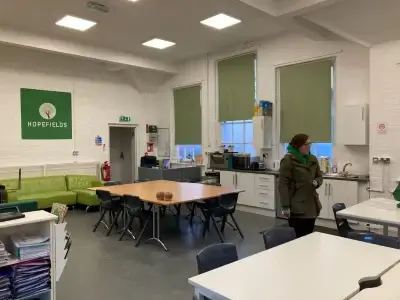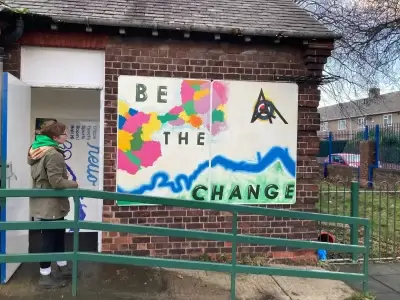 In recent years, we’ve seen an increase in the number of pupils accessing unregistered alternative provision. I visited Hopefields Education, one such provider, to find out why.
In recent years, we’ve seen an increase in the number of pupils accessing unregistered alternative provision. I visited Hopefields Education, one such provider, to find out why.
Alternative Provision (AP) is a broad term used to define the settings attended by pupils that have been excluded from school, or who may also be at risk of exclusion. Unregistered AP describes the same, but more specifically those providers not registered as a school with the Department for Education.
It is sometimes easy to shy away from these problems. Since 2018, the Centre for Social Justice (CSJ) has been working to improve the life chances of young people that have been excluded from school or who are at risk of exclusion. As part of our process to achieve this, we visit frontline organisations to find solutions that work. To that end, I was privileged to visit Hopefields Education, an unregistered alternative provision (AP) in Thornaby, Stockton-on-Tees.
In 2019 Thornaby was found to be in the most deprived decile by the Office for National Statistics when its performance against the English Indices of Deprivation was compared to that of other local authorities across the country – 2019 being the most recent and comprehensive dataset available on their socio-economic development. Emily Greenhalgh – Hopefield’s founder, a former mainstream headteacher, and a long-term resident of the town – brought home just how entrenched some of the issues in the area are. Our conversations revealed the determination held by both her and her team to redress this.


Hopefields Education supports fifteen students. All have an education, health and care plan. Every pupil, bar one, comes from a home that has suffered some form of family breakdown. Many have suffered from adverse childhood experiences, the trauma being dealt with by the organisation’s trained practitioners. The needs of these pupils are perennial and the hardship they experience, severe, cyclical, intergenerational.
Hopefields believes that this needn’t be the case. The clue is in the name and in the eyes of their team. There is hope for these kids, their families, and their community. I was able to visit Hopefields’ premises and met with pupils and practitioners, discussing at length their experiences. The CSJ believes that pupil voice is vitally important when considering the efficacy of educational intervention. It was fantastic to hear the students saying that Hopefields is the best place they had ever been to be able to learn. For many, it is the first place they have wanted to attend.
It is easy to see why this is the case. I met a team of trained professionals able to offer a tailored curriculum, three-days-a-week, to pupils in Key Stages 3 and Key Stage 4. The sessions are fun, engaging, and the kids benefit from the close involvement of those leading them. Art, music, and drama are all pursued. Pupils spoke confidently and articulately of just how much they enjoy these sessions and the extent to which their experience was made all the better by being able to pursue qualifications on ‘the farm’. The farm, I learned, is the term used by the pupils to refer to The Montana Project, Hopefields’ equine therapy initiative. It was evident that the Project led to the fostering of strong pupil-leader relationships, and that back in the classroom, those relationships made subjects like maths that bit easier.
I was deeply impressed by the work done at Hopefields. Its success has led to its expansion and increase in demand for places. For me it is so important that we learn from these frontline organisations, rooted in their communities. Our evidence shows that exclusion, and the risk of exclusion, from school can have a devastating impact on the future prospects of a young person. Organisations like Hopefields Education show us why it doesn’t have to be that way.
Hopefields Education is part of the CSJ’s Alliance of poverty-fighting charities. We are incredibly grateful for their support and the time taken to show us their fantastic setting.
If you’d like to join the Alliance, then get in-touch by following this link.



